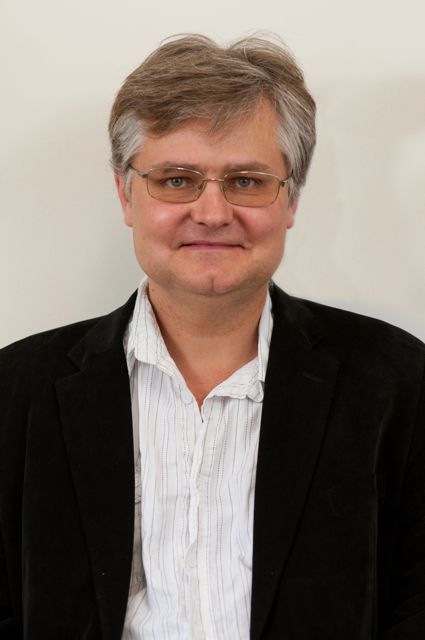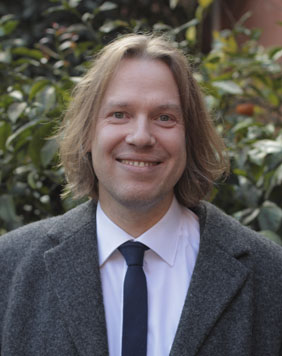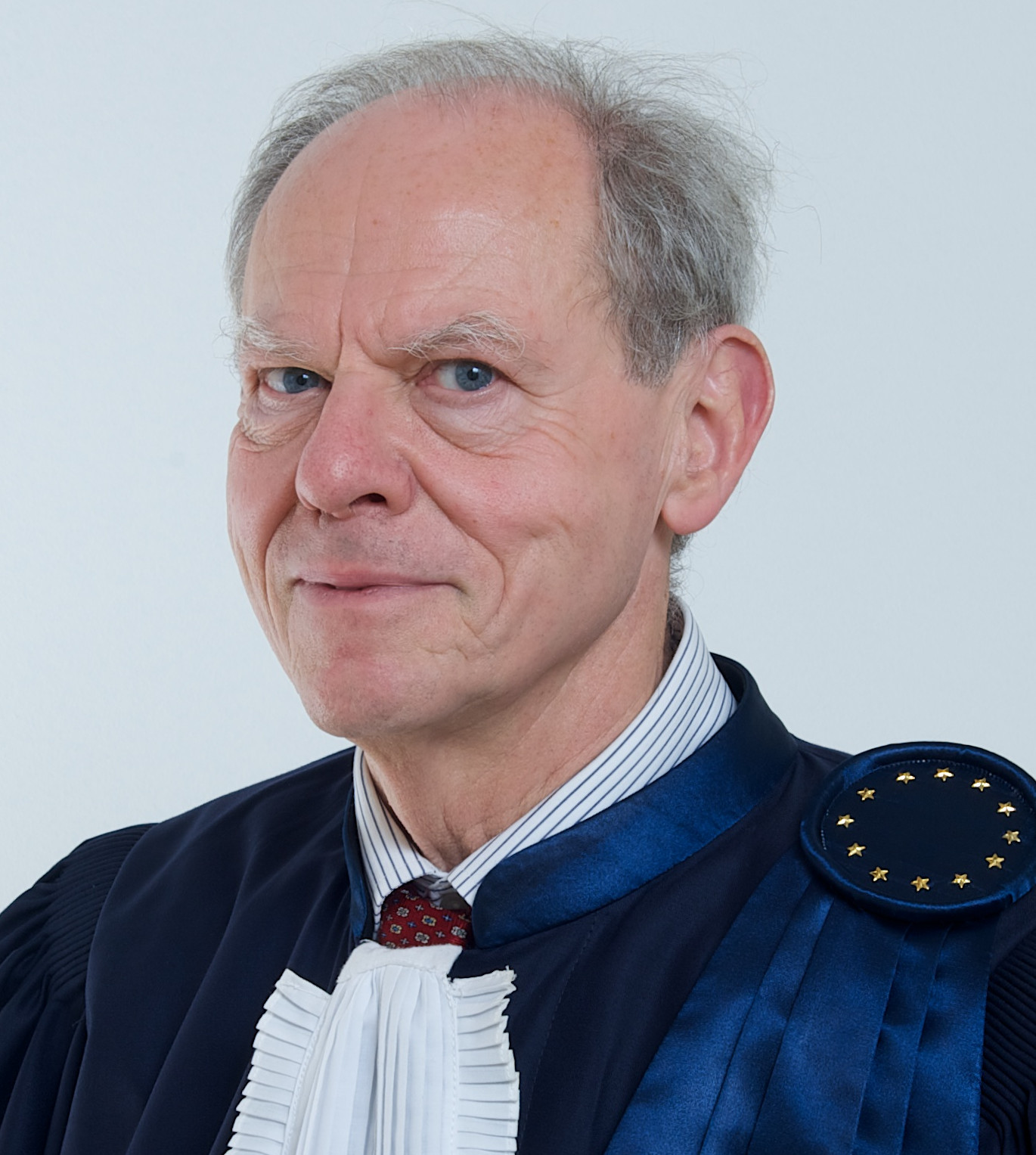We warmly invite all PhD students of the Jagiellonian University to take part in our lecture series Emotions, Rationality, Decision-Making, conducted by renowned Professors from various universities. Enrolment will be possible via USOSweb and the lectures will take the form of MS Teams meetings. To participate in the lectures, you should join the team (Microsoft Teams, code: gdmuhng).
Information about the events will be published below.

Commencing with a short background of the history of sociological research on emotions, and defining the concept of emotion in an interdisciplinary context, this lecture will critically explore the often used dichotomy between emotion and reason. In recent decades, there has been a re-evaluation of the role of emotions in social life and social science, to the extent that scholars often talk of an ‘emotional turn’. The main focus will be on theorizing rational decision-making as an emotive-cognitive process using legal decision-making as a case in point.
Bio





 Prof. Winkielman (UC San Diego) studies the interplay between emotion, cognition, embodiment and consciousness, particularly in the domain of social cognition. Specifically, he is exploring unconscious affect, affective influences on decisions, and embodiment of affective processing. He is also investigating the role of cognitive feelings, such as processing fluency or recall difficulty in a variety of judgments, ranging from attractiveness to memory. His work draws on a variety of psychological methods, including those of social neuroscience. (
Prof. Winkielman (UC San Diego) studies the interplay between emotion, cognition, embodiment and consciousness, particularly in the domain of social cognition. Specifically, he is exploring unconscious affect, affective influences on decisions, and embodiment of affective processing. He is also investigating the role of cognitive feelings, such as processing fluency or recall difficulty in a variety of judgments, ranging from attractiveness to memory. His work draws on a variety of psychological methods, including those of social neuroscience. (
 Joana Geraldi is associate professor at Copenhagen Business School, Department of Organizations, and leads the Pro&Con – Project Studies Group. She studies people in projects and develop people-centric organizational contexts for projects. Joana’s empirical contexts are in projects and project organizing across different industrial contexts, in particular, large engineering projects, IT, construction and wind industries. Her research earned international awards and led to over 50 publications, most of which in the key project journals and conferences. In the recent years, Joana is intrigued about decisions in projects, and studies how decisions happen in projects, looking at the interfaces between individual cognition, organizational decision making and artefacts, in particular, visualizations.
Joana Geraldi is associate professor at Copenhagen Business School, Department of Organizations, and leads the Pro&Con – Project Studies Group. She studies people in projects and develop people-centric organizational contexts for projects. Joana’s empirical contexts are in projects and project organizing across different industrial contexts, in particular, large engineering projects, IT, construction and wind industries. Her research earned international awards and led to over 50 publications, most of which in the key project journals and conferences. In the recent years, Joana is intrigued about decisions in projects, and studies how decisions happen in projects, looking at the interfaces between individual cognition, organizational decision making and artefacts, in particular, visualizations. 
 Claudia Landwehr is a University professor of public policy at the Johannes Gutenberg-University Mainz. Her most recent works involve research on depressive symptoms and nonparticipation, backlash against the procedural consensus of liberal democracy, deliberative democracy, links between material interest and support for direct democracy, as well as social and political responses to Covid-19. She is a member of the senate competition committee of Leibniz Association, co-speaker at the research unit “Interdisciplinary Public Policy” (JGU Mainz), senior member of the Gutenberg Academy (JGU Mainz) and an academic advisory board member in projects PALO (Participation in Long-Term Decision-Making) SRC Finland and ZIRIUS - Centre for Interdisciplinary Risk and Innovation Studies, Stuttgart.
Claudia Landwehr is a University professor of public policy at the Johannes Gutenberg-University Mainz. Her most recent works involve research on depressive symptoms and nonparticipation, backlash against the procedural consensus of liberal democracy, deliberative democracy, links between material interest and support for direct democracy, as well as social and political responses to Covid-19. She is a member of the senate competition committee of Leibniz Association, co-speaker at the research unit “Interdisciplinary Public Policy” (JGU Mainz), senior member of the Gutenberg Academy (JGU Mainz) and an academic advisory board member in projects PALO (Participation in Long-Term Decision-Making) SRC Finland and ZIRIUS - Centre for Interdisciplinary Risk and Innovation Studies, Stuttgart.
 Roberto Manzocco was born and raised in Italy. A graduate of Philosophy and of Science Communication (International School of Advanced Studies in Trieste), he earned his PhD in History of Science at the University of Pisa, defending a thesis on Ludwig von Bertalanffy and General Systems Theory. Currently he is an Adjunct Associate Professor at the Department of Anthropology of the John Jay College for Criminal Justice, City University of New York. He has published five books, three in the field of so-called pop philosophy, and two on transhumanism; he also worked as science journalist, publishing in five years more than 2000 articles.
Roberto Manzocco was born and raised in Italy. A graduate of Philosophy and of Science Communication (International School of Advanced Studies in Trieste), he earned his PhD in History of Science at the University of Pisa, defending a thesis on Ludwig von Bertalanffy and General Systems Theory. Currently he is an Adjunct Associate Professor at the Department of Anthropology of the John Jay College for Criminal Justice, City University of New York. He has published five books, three in the field of so-called pop philosophy, and two on transhumanism; he also worked as science journalist, publishing in five years more than 2000 articles. 
 Stefan Lorenz Sorgner is a tenured philosophy professor at John Cabot University in Rome and is director and co-founder of the Beyond Humanism Network, Fellow at the Institute for Ethics and Emerging Technologies (IEET), Research Fellow at the Ewha Institute for the Humanities at Ewha Womans University in Seoul and Visiting Fellow at the Ethics Centre of the Friedrich-Schiller-University in Jena. He is editor of more than 10 essay collections, and author of the following monographs: Metaphysics without Truth (Marquette University Press 2007), Menschenwürde nach Nietzsche (WBG 2010), Transhumanismus (Herder 2016), Schöner neuer Mensch (Nicolai, 2018), Übermensch (Schwabe 2019), On Transhumanism (Penn State University Press 2020), We have always been cyborgs (Bristol University Press, 2021). In addition, he is Editor-in-Chief and Founding Editor of the “Journal of Posthuman Studies” (a double-blind peer review journal, published by Penn State University Press since 2017). Furthermore, he is in great demand as a speaker in all parts of the world (World Humanities Forum, Global Solutions Taipei Workshop, Biennale Arte Venezia, TEDx) and a regular contact person of national and international journalists and media representatives (Die Zeit, Cicero, Der Standard; Die Presse am Sonntag).
Stefan Lorenz Sorgner is a tenured philosophy professor at John Cabot University in Rome and is director and co-founder of the Beyond Humanism Network, Fellow at the Institute for Ethics and Emerging Technologies (IEET), Research Fellow at the Ewha Institute for the Humanities at Ewha Womans University in Seoul and Visiting Fellow at the Ethics Centre of the Friedrich-Schiller-University in Jena. He is editor of more than 10 essay collections, and author of the following monographs: Metaphysics without Truth (Marquette University Press 2007), Menschenwürde nach Nietzsche (WBG 2010), Transhumanismus (Herder 2016), Schöner neuer Mensch (Nicolai, 2018), Übermensch (Schwabe 2019), On Transhumanism (Penn State University Press 2020), We have always been cyborgs (Bristol University Press, 2021). In addition, he is Editor-in-Chief and Founding Editor of the “Journal of Posthuman Studies” (a double-blind peer review journal, published by Penn State University Press since 2017). Furthermore, he is in great demand as a speaker in all parts of the world (World Humanities Forum, Global Solutions Taipei Workshop, Biennale Arte Venezia, TEDx) and a regular contact person of national and international journalists and media representatives (Die Zeit, Cicero, Der Standard; Die Presse am Sonntag). 
 András Sajó is University Professor, Central European University, Wien and former Vice-President of the European Court of Human Rights. He taught comparative constitutional law in many countries, most recently at Harvard Law School. His Constitutional Sentiments (Yale University Press, 2011) was the first systematic monography showing the role of public emotions in the formation of constitutional institutions. His current interest in emotion regulation concerns the display of emotions in cyberspace and the new, emotionally driven structures of communication is related to his work at the Oversight Board of Facebook.
András Sajó is University Professor, Central European University, Wien and former Vice-President of the European Court of Human Rights. He taught comparative constitutional law in many countries, most recently at Harvard Law School. His Constitutional Sentiments (Yale University Press, 2011) was the first systematic monography showing the role of public emotions in the formation of constitutional institutions. His current interest in emotion regulation concerns the display of emotions in cyberspace and the new, emotionally driven structures of communication is related to his work at the Oversight Board of Facebook.
 Dr. John Morrison is a senior lecturer in Criminology at Royal Holloway, University of London. He has an interdisciplinary background in psychology, international relations and criminology. John's research interests include organisational fragmentation, disengagement from terrorist groups, and the role of trust in terrorism. Dr. Morrison is the host of the Talking Terror podcast and is on the Editorial Board of three leading terrorism studies journals.
Dr. John Morrison is a senior lecturer in Criminology at Royal Holloway, University of London. He has an interdisciplinary background in psychology, international relations and criminology. John's research interests include organisational fragmentation, disengagement from terrorist groups, and the role of trust in terrorism. Dr. Morrison is the host of the Talking Terror podcast and is on the Editorial Board of three leading terrorism studies journals.